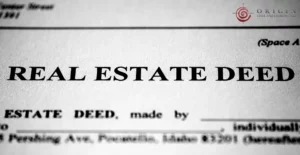Real estate and property law since 2003
News
1031 Exchanges
By John Bennett |
In real estate, capital gains tax is normally due on the seller’s gain when selling investment property. The gain is the difference between the basis and the sales price. The basis is the purchase price from when the seller purchased the property, plus any amount spent for improving the property. For example, if an investor…
Read More Deed Taxes and Recording Costs
By John Bennett |
Georgia charges a flat fee of $25 per document to record in the real estate records. For e-recording, most counties add fifty cents, (Fulton county adds two dollars), as a convenience fee. There are several e-filing service companies that add their own fees to the cost of recording documents. The flat fee is great because…
Read More Rent-to-Own Programs
By Christine Fleury |
With the rising costs of housing, looming student loans and stagnation of wages, the entry to home ownership has risen quite significantly. There are alternatives to the traditional way of purchasing a home that has given millennials, Gen Z and those facing financial constraints a way to finally get a deed of their own. Rent-to-own…
Read More Buyer Beware: What Do Sellers Have to Disclose in Georgia?
By Christine Fleury |
You saved your money for a down payment, got rid of debt to increase your credit score, and found the perfect house for your future. Your agent submitted a bid, your contract was chosen, and now it’s time to inspect the home. In Georgia, it is your responsibility to do your own due diligence! You…
Read More Property Tax Exemptions
By John Bennett |
Once you have purchased your new home, now you have to pay taxes on the property. Property taxes vary quite a bit from county to county, and there are additional property taxes for many incorporated cities in Georgia. The tax assessor is responsible for determining property values and granting or denying tax exemption applications. The tax…
Read More Tips on Homeowners Insurance
By John Bennett |
Another cost of home ownership is insuring the home. Home insurance is required by lenders. If you do not have a mortgage, then you are not required to have it (although we still recommend it). In order to have actual insurance coverage, the name of the insured must match the name on title to the…
Read More You Bought a Home, Now What?
By John Bennett |
You closed and have been handed the keys to your new home. Home ownership comes with a lot of responsibility and work. Once the deed is recorded in the county records, you can expect an avalanche of junk mail, which often pretends to be from your lender or some official office in the county or…
Read More Moving Into Your New Home
By John Bennett |
It is exciting to move into a new home, but it’s also a lot of work. Hiring movers is extremely helpful, but there is more involved than simply moving furniture. The first step should be to get all the utilities set up or transferred into your name. The seller will close their accounts for water,…
Read More Fraud Makes It More Difficult for Everyone
By John Bennett |
The days of the out-of-state seller arranging their own notary and witness are over. Fraudsters can copy and paste a notary’s signature and stamp on any deed or security deed. This is a strong reason why a closing attorney needs to be in charge of the full closing process. Georgia requires that an attorney be…
Read More Update on MV Realty
By John Bennett |
Remember the company that was filing ‘Memorandum of Homeowner Benefit Agreements” to encumber real estate for 40 years? After several lawsuits, criminal investigations, and states passing laws banning the practice, MV Realty has filed for Chapter 11 bankruptcy. In Georgia, after January 1, 2024, the Memorandums will have no effect on title and can be…
Read More Getting Real Estate Documents Signed Overseas
By John Bennett |
It is often difficult and expensive, but closing documents can be signed outside of the United States if necessary. The seller, buyer, or borrower can usually sign at a United States Embassy. If the US Embassy is not an option, the documents will need to be executed with a witness, notary, and then an Apostille.…
Read More Double Closing Risks
By John Bennett |
We sometimes get asked if we do ‘double closings.’ This refers to the practice of purchasing aproperty and then selling it the same day for a profit. This type of transaction poses risks for theclosing attorney as well as the parties involved. Double closings are not illegal, but they pose many problems. Usually, the first…
Read More Power of Attorney Use
By John Bennett |
A Power of Attorney (POA) is a legal agreement which allows one person (the ‘agent’) to sign documents on behalf of another person (the ‘principal’). POA’s are a great option in some circumstances but should be used because one party simply does not want to come to closing. Closing attorneys need to balance accommodating the…
Read More Title Reversion for Georgia Mortgages
By John Bennett |
Old security deeds (commonly referred to as mortgages) do not always get released orcanceled as they should. The lender may have failed to file the release, gone out of business, ormay have been purchased by another bank. These old loans can be very difficult to track down. A security deed is a document conveying a…
Read More MV Realty News
By John Bennett |
Has anyone seen the news about MV Realty and the ‘liens’ they have filed against thousands of homeowners in Georgia? We have run across these filings on a couple closings in our office. MV Realty will contact a homeowner, usually elderly, and pay them $500 to $2,000 in exchange to agree to have MV Realty…
Read More Fraud Schemes
By John Bennett |
I know that as a closing attorney’s office, we ask a lot from buyers and sellers. Fraud makes it difficult for everyone to make sure everything goes smoothly in a closing. Technology has made a lot of things easier, but also easier to commit fraud in many instances. We have to be on the lookout…
Read More Legal Property Descriptions on a Georgia Deed May Vary
By John Bennett |
All deeds require an accurate description of the real property being conveyed. Street addresses and Tax Parcel numbers can change, so they are not sufficient to describe real property on a deed. Each state may describe real estate a little differently. In Georgia, we have two main types of legal descriptions. The easy one is…
Read More Adding a Minor Child to a Real Estate Title
By John Bennett |
What are the issues with adding a minor child to a real estate title? It seems like an easy way to let children inherit real estate. First, once on the title, it is very difficult to refinance or to convey the title out of the child’s name. Any deed signed by a minor is voidable,…
Read More Adding Heirs To A Title is Not Always a Good Idea
By John Bennett |
In Georgia, property owners can either own real estate with another person as tenants in common, or as joint tenants with survivorship. Georgia does not have Tenancy by the entirety, although other states do. With Tenants in common, if an owner passes away, that person’s heirs inherit their portion of the property. If they owned…
Read More FANS Free Title Monitoring
By John Bennett |
Maybe you have seen or heard the commercials for services that charge a monthly fee to monitor real estate records. These monitoring services are expensive and vague as to the solutions they provide if anything is ever found. Fulton and Dekalb counties have been offering real estate monitoring services for a few years, but now…
Read More New Recording Requirements for Georgia Security Deeds
By John Bennett |
Georgia House Bill 974 (updating OCGA §44-14-63) passed and will go into effect July 1, 2023. Lenders may need to adjust their closing documents to make sure all the required information is listed on the first page of the security deed. (Security deeds are commonly referred to as mortgages). Sometimes the loan amount and the…
Read More Townhome vs Condominium
By John Bennett |
How do you decide if a property is a condominium or a townhome? A property is not a condominium unless the developer or owner has filed a “Declaration of Condominium” in the real estate records. The condominium will also need plans recorded identifying each unit. Townhomes will normally have a Declaration of Restrictions, Conditions, and…
Read More GAR Changes on Closing Costs – Part IV Buyer Beware
By John Bennett |
The standard contract used by licensed real estate brokers and agents is the form provided by the Georgia Association of Realtors (GAR) and known as the GAR Contract. This form is tweaked from year to year to clarify any terms that may have caused confusion in the past. Georgia is a ‘Buyer Beware’ state that…
Read More GAR Changes on Closing Costs – Part III Who Does the Closing Attorney Represent?
By John Bennett |
The standard contract used by licensed real estate brokers and agents is the form provided by the Georgia Association of Realtors (GAR) and known as the GAR Contract. This form is tweaked from year to year to clarify any terms that may have caused confusion in the past. In the 2021 GAR contract, the closing…
Read More GAR Changes on Closing Costs – Part II Closing Date Extensions
By John Bennett |
The standard contract used by licensed real estate brokers and agents is the form provided by the Georgia Association of Realtors (GAR) and known as the GAR Contract. This form is tweaked from year to year to clarify any terms that may have caused confusion in the past. The GAR contract allows either the buyer…
Read More GAR Changes on Closing Costs – Part I Wiring and Mail Fees
By John Bennett |
The Georgia Association of Realtors (GAR) provides a standard purchase and sale agreement for licensed brokers and agents to use. The form is tweaked almost every year. One of the changes for 2023 is a clarification on closing cost. Page one of the GAR purchase and sale contract lists the total Seller’s contribution towards closing costs. This made it…
Read More Mobile Closings
By John Bennett |
Buying a new home is exciting, but no one really enjoys coming to an attorney’s office to sign documents. It’s not convenient, and you often have to sit in a waiting room for a long time. Origin Title and Escrow makes it easy to sign closing documents by sending an attorney to the borrower’s home or…
Read More Beware of Deed and Home Warranty Scams
By John Bennett |
When you purchase real estate or take out a mortgage, the vesting deed and security deed are recorded in the county’s real estate records, which are open to the public. The information made public is the purchase price, loan amount, and names on title. The real estate documents do not disclose the terms of your mortgage,…
Read More Surveys and Title Insurance
By John Bennett |
It takes a little extra time to get a survey done, but it is often worth it. There are several types of surveys, and it can be very confusing. Without knowing what you need, it’s difficult to get the correct type of survey. You can get a survey for construction, as-built, topography, flood zones/FEMA elevation, boundary lines, and…
Read More Junk Fees Revisited
By John Bennett |
One of the many ways closing attorneys increase their fees is by passing costs on to buyers and sellers for incidental costs of doing business, such as copying, recording, overnight mailing, or banking services. When quoting their closing costs, many attorneys omit these items, so they come as a surprise right before closing. Some added costs…
Read More Importance of Full Title Search
By John Bennett |
Home buyers should never accept someone’s word alone that they own the property and that there are no mortgages or liens on it. As closing attorneys, we do much more than just prepare the deed to transfer ownership. We do a 50-year back-search on the title on all purchases, and also issue title insurance to…
Read More What Does a Closing Attorney Do?
By John Bennett |
The general public may not know exactly how real estate is sold in the United States. When you sell a car, you have a piece of paper called a Title, which is a document of ownership that is registered with the state that gets signed over to the buyer. In the sale of real estate,…
Read More Do-It-Yourself Real Estate
By John Bennett |
What are some things you regret trying to do yourself? Do you change your own oil? Fill your own cavities? Prepare your own will? or draft your own property deed? Sometimes when you do things yourself, if you do it wrong, the worst is that you’ll need to fix your mistakes. If you don’t replace…
Read More Reverse Mortgages: When a Spouse is Too Young to Qualify
By John Bennett |
There are never any required payments for a reverse mortgage until the borrower dies, moves, or fails to pay property taxes or insurance. If one of those events happens, the full amount of the loan is due. Sometimes one spouse would not be 62 years old yet and be too young to qualify for a…
Read More Fixtures as Collateral?
By John Bennett |
You can borrow against almost anything. Sandwiched in the gray area between “real estate” and “personal property” is something called a fixture. A fixture is something you can buy and attach to real estate or a house, like an air conditioner. Origin Title sees a few cases like this every year: the homeowner had a…
Read More How Often Are There Problems with Title?
By John Bennett |
We fix issues with the title about 25% of the time. The most common title issues are un-released mortgages, possible liens because the borrower has a common name, and mistakes in the legal description. All of these can be corrected. The un-released mortgage is often a home equity line of credit with a zero balance. …
Read More The Days of Closing Using Zoom Are Over
By John Bennett |
During the state of emergency under pandemic precautions, we could notarize and witness someone signing documents over video. The signor would still have to send the original documents back for us to sign as the witness and notary, though. This worked well. For the past 2 years, there was proposed legislation to allow for Remote Online Notaries,…
Read More Can You Purchase Property With a Lien Filed Against You?
By John Bennett |
The answer most of the time is yes, even if it is an IRS lien. A buyer with a lien is not a deal-killer. Purchase money mortgages take priority over judgment liens and state income tax liens. The Federal tax code even puts the IRS behind a purchase money mortgage. Some attorneys would not close…
Read More Do All Closing Attorneys Do a Full 50-Year Title Search?
By John Bennett |
Unfortunately, the answer is no. In Georgia, the 50-year span is considered the standard of sufficient time to determine that a property is free from reasonable doubt of litigation, but that amount of time is not mandated. Some closing attorneys take their chances with a quick limited search to move the process along faster. They…
Read More Why Does a Full Title Search Go Back 50 Years?
By John Bennett |
This is the time span required by the State of Georgia title standards. I have a good idea of how they came up with this figure. A mortgage normally matures after 30 years. For mortgages/security deeds before 1994, if it has been more than 20 years since the mortgage matured, then it reverts back to…
Read More Are Title Monitoring Services Worth It?
By John Bennett |
Deeds often get filed without the benefit of a title search or a real estate attorney, such as a quit claim that shares or gifts all of the property to a trusted friend or family member. Thieves can take advantage of this to forge the owner’s name on a deed, gifting the property to themselves,…
Read More An Unclear Title
By John Bennett |
On about half of the closings we perform, there is a need to clear up some kind of title issue. If a title is not cleared, the lender or buyer may decide not to close on the property. Common problems include judgments, liens and bankruptcies that are discovered as we look back over 50 years…
Read More Protecting Yourself from Wire Fraud
By John Bennett |
Wire fraud is an increasing problem when it comes to real estate transactions. Cyber criminals are experts at hacking email accounts and sending emails with fake wiring instructions. These emails can be convincing and sophisticated. Once funds are wired to a fraudulent account, the money is gone and there is no recourse unless something is…
Read More Investor Options for Title Insurance
By John Bennett |
The standard Georgia Association of Realtor’s contract states that property buyers, by default, receive an enhanced title insurance policy at closing. Title insurance protects the owner and/or lender from title defects. An enhanced policy provides added protections against fake deeds, supplemental tax assessments, post policy forgeries and much more. The enhanced policy is tailored to…
Read More What happens to a reverse mortgage when you move?
By John Bennett |
A reverse mortgage can be a great option for senior homeowners, as it can help to increase cash flow and allow them to stay in their homes longer. But what happens when the borrower moves out? Reverse mortgages become due when the last borrower on the mortgage passes away, sells the home, or moves out of…
Read More Intricacies of a Reverse Mortgage
By John Bennett |
With a standard mortgage, the borrower is personally responsible for the note. In the case of a foreclosure, the bank will foreclose on the property and sell it in order to recoup the amount still due. If the bank sells the house for less than the amount due on the loan, the bank can file for a…
Read More Borrowing and Non-Borrowing Spouses on a Reverse Mortgage
By John Bennett |
A married couple may have a reverse mortgage with only one spouse listed on the property and as the only borrower. The other person not on the loan is listed as a “non-borrowing spouse”. Remember that reverse mortgages have no payments and the loan is not due until BOTH spouses move out of the house, whether…
Read More Using a Reverse Mortgage for a Home Purchase
By John Bennett |
As housing prices rise, many seniors believe they can’t afford to buy a new house that’s better suited to their new lifestyle. A reverse mortgage can be a good option for someone over 62 and requires no monthly payments. Reverse mortgage funds, which are only available on a primary residence, are structured as a lump sum or…
Read More Do both spouses have to be over 62 to qualify for a reverse mortgage?
By John Bennett |
In Georgia, a reverse mortgage allows a homeowner who is above the age of 62 to borrow against the value of their home. Unlike a typical mortgage, a reverse mortgage doesn’t require the homeowner to make loan payments. Instead, the entire loan balance is due when the borrower dies, moves or sells the home. In…
Read More Ensuring Correct County Recordings
By John Bennett |
As of July, 2021, the Atlanta metro area includes 11 counties. Having an Atlanta mailing address does not mean the property is in the official city limits. A house can have an Atlanta address and be located in Cobb, DeKalb, or Fulton county. When a homeowner refinances or sells property and pays off a mortgage,…
Read More About Origin Title
By John Bennett |
Since 2003, Origin Title and Escrow has performed thousands of closings. Our team understands the concerns and the interests of every party at the closing table. Real estate agents and buyers alike want to know that when they contact a closing attorney, they will reach someone who can answer their questions. That’s who we are…
Read More When Is a Closing Attorney Selected?
By John Bennett |
In Georgia, the closing attorney represents the lender that provides the loan, (or the Buyer in an all cash transaction), but the BUYER names the closing attorney in the sales agreement. The closing attorney’s role is significant, as they ensure all parties understand the complexities of the real estate closing process. As the buyer, you have the option…
Read More Importance of Selecting an Independent Closing Attorney
By John Bennett |
It is important to select an independent closing attorney for many reasons. We believe one of the top reasons is integrity. When putting a house under contract, an Affiliated Business Arrangement is a document stating that there is a business relationship involving the sharing of profits by a settlement service provider to another affiliated business. Origin…
Read More Tax Aspects of Selling a Home
By John Bennett |
When selling a primary residence, some sellers pay no income tax on the gain. Paying taxes on the profit of a home depends on how long you owned and lived in the home, as well as how much money was made. If you lived in the home for at least two of the five years before…
Read More If you bought a house in 2020, there are two things that should be done
By John Bennett |
First, is to apply for homestead exemption if you moved into the home by January 1st and it’s considered your legal residence. This exemption can offer a significant break on property taxes. Second, is to keep your closing statement for preparing your tax return. In addition to Homestead exemptions, most counties have additional exemptions for people…
Read More Importance of Closing Before Year-End
By John Bennett |
January 1st is a very important date for new homeowners. All counties in Georgia provide a significant break on property taxes for people’s primary residence if they are the owner on record as of January 1st of that year. This is called the homestead tax exemption. In order to qualify for the exemption, a person must own…
Read More Wire Transfer Warning
By John Bennett |
The average home buyer or seller likely does not know about scams in the real estate world. The most common scam in real estate is wire fraud during closing. On instances of wire fraud i poses as an agent in order to divert closing funds to a fraudulent account. The Buyer would receive an e-mail…
Read More Lender vs Owner Title Insurance
By John Bennett |
Mortgage lenders require title insurance on every loan they close which protects them against problems with the title. However, this type of insurance does not protect the homeowner’s investment in the home. The owner’s policy is separate and typically issued when the property is purchased. Even Clark Howard, the thriftiest person in Georgia, recommends getting owner’s title…
Read More Enhanced Title Insurance
By John Bennett |
Few things are more important than protecting a home. For a minimal cost, homeowners have the ability to reduce their risk on one of the most significant investments they will make. There are two types of title insurance; owner and lender. Additionally, there are two types of owner policies and two types of lender policies. …
Read More Remote Closings in Georgia
By John Bennett |
Due to the pandemic, closings and signings have been facilitated via video. Georgia has put two separate emergency orders in to place to accomplish this. Georgia is an “attorney state”, meaning that an attorney is required to be present when signing legal documents such as a deed. The emergency order issued by the Supreme Court…
Read More Attorney States vs. Title Company States
By John Bennett |
Real estate closings differ from state to state. In “Attorney States”, a licensed attorney must be present at and have control over the closing. This includes reviewing the title search, preparing affidavits, receiving and disbursing all money. Several east coast states are attorney states: Georgia, South Carolina and North Carolina. Some states, such as Florida, are…
Read More Closing Terminology
By John Bennett |
When someone calls to start an escrow, we know where they’re calling from…California. Each state has different terminology when it comes to closings. In California, an escrow is opened where the title company holds all the documents and money until the disbursement date. The parties may sign the documents days before the funds are actually sent out. While…
Read More Refinancing and Intangible Tax
By John Bennett |
Most people buy a house two or three times in their lifetime, and perhaps refinance another couple of times. When refinancing, you may have the best loan in the world, but if it’s not closed or reviewed properly, you could lose hundreds or thousands of dollars. One area where borrowers can lose money is with…
Read More Can my spouse be on the title to the house, but not on the loan?
By John Bennett |
Yes! When you borrow money to buy a house, there are two separate and distinct promises you are making. First, the personal liability is the promise to personally pay back the loan. This is represented by the promissory note at closing. Lenders look at the credit rating of anyone signing the promissory note. Second, is the…
Read More Property Records Are Public in Georgia
By John Bennett |
In Georgia, all property records are public. Deeds, liens, mortgages and tax information are available to anyone who wants to pull them. With records being public, purchasers will know they are getting full ownership of the purchased property, and public records also let potential buyers know any restrictions that might be on the land. But…
Read More Buying real estate that is in bankruptcy
By John Bennett |
Homes purchased that are part of a bankruptcy can present unique challenges. There are also different types of bankruptcy which can make the transaction even more complex. Under Chapters 7 and 11, the trustee is the appointed seller of the home. In most other cases, the owner is the proper seller. In either case, a court order…
Read More Notarization during the COVID-19 Pandemic
By John Bennett |
Real estate transactions typically involve the execution and delivery of written documents that must be notarized in order to be recorded. In response to the COVID-19 pandemic, many states have put in place emergency measures to assist notaries in carrying out their duties. Georgia’s emergency order has been extended through July 12, which means Origin…
Read More Like it or not, real estate transactions are public record
By John Bennett |
When a person buys a house or refinances real estate, the warranty deed and mortgage are filed at the courthouse and become public record. Anyone can look up a deed or mortgage to find out how much their neighbor borrowed against their house, and even for how much it was purchased. These public records are…
Read More Origin Title’s Video Conferencing Resources
By John Bennett |
During the state of emergency, Origin Title and Escrow, Inc can provide notaries, witnesses, and be the closing attorney via video conferencing. As a buyer or seller, you can sign your closing documents with the notary, witness, and attorney present via video conferencing. Normally, the closing attorney also acts as the notary or witness. You will…
Read More Virtual Meetings
By John Bennett |
Who likes going to office meetings? Frequent meeting attendees hope there’s a spread of food and drinks; if there’s not, then they’d prefer the conversation be conducted via email. Real estate brokerages are shifting to virtual office spaces where there are no in-person meetings to attend. Some brokerages even have avatars for their agents to meet with…
Read More Online Shopping for a Closing Attorney?
By John Bennett |
97% of home-buyers begin their search for a house online. 74% of people looking for a mortgage now find it online. Less than 1% of people shop for their closing attorney online. This 1% is the main reason it’s important for closing attorneys to have a strong network of real estate agents that assist buyers. It’s also…
Read More Are Remote Closings Possible?
By John Bennett |
The Supreme Court order that was issued on March 27 concerning closing real estate transactions via video has been misinterpreted by some, so here are the facts. As of March 27, closing via video conference is possible where the attorney and the signing party can see and hear each other, and the signing party is…
Read More Preventing Title Issues on Closing Day
By John Bennett |
Some surprises are good. When it comes to closing on a home, a surprise is rarely a good thing. Many closing attorneys use big title companies for their title searches and these companies can take about three weeks to receive title results. When sellers learn about a title issue the day before closing, it’s because the…
Read More What rights do homeowners have to the alleyways behind their house?
By John Bennett |
Alleys are found mostly in the City of Atlanta and in older neighborhoods. In the 1980’s, the city of Atlanta decided that was too costly to maintain those alleys. They officially abandoned all alleyways, except for a few specific ones which have been historically maintained. This means that the other rights-of-way were still there, but…
Read More Making a Closing a Pleasant Experience
By John Bennett |
Spring is right around the corner, which means it is home buying time! New real estate agents come into the market frequently with dreams of working just a few hours a week while earning $100K a year. We all know that’s unrealistic. It takes years to build up a client base, and clients only come back when…
Read More A Prompt Filing Date
By John Bennett |
When a title search is completed, there is always an effective date on the title commitment. This is the date the county clerk has processed all of the deed filings. Believe it or not, the filing date is very important because whichever lien or security interest is filed first has priority. Being in first lien position…
Read More Importance of a Buyer’s Closing Attorney
By John Bennett |
Buying a home is, perhaps, the largest and most significant investment of your life. It also involves a unique set of property laws that can raise unexpected issues at closing. That’s why a buyer usually selects the attorney to handle the transaction. We have a client who is an investor that fixes up and sells…
Read More A Quick and Stress-free Closing
By John Bennett |
Some attorneys start doing real estate closings because it looks easy and can be profitable. At a closing, the attorney simply explains documents for the buyer and seller to sign, and often, it looks like they are just pointing to a signature line. But what if there is a title issue? The ‘point and sign’ attorney…
Read More Legal Property Descriptions
By John Bennett |
If you saw that a property is being purchased in the “21st District, 2nd Section of Cherokee county, starting at an apple tree, thence to a pine tree to line of Eli Wilbur, thence back to the road, up to a hickory tree, thence west 50 yards, thence south 80 yards, thence to E.G. Casey land, being…
Read More A spouse automatically inherits the house from their deceased spouse, right?
By John Bennett |
The answer is no. It is not automatic and surviving spouses can be in a bind if they aren’t prepared. Ideally, spouses are listed as “joint tenants with right of survivorship” on the vesting deed. If this is the case, then the surviving spouse automatically becomes the owner of the property. This is also true for any co-owners of…
Read More Heir to a Reverse Mortgage
By John Bennett |
When a person passes away, the heirs must decide if they want to sell the house or convey it to an heir. With a regular mortgage, heirs have three options: Keep paying the mortgage of the deceased person until an heir assumes the loan Sell the house to a third person Let the house go…
Read More Sometimes Foreclosure is Exactly What You Want
By John Bennett |
Regular mortgages require the borrower to be personally responsible for the note. If the borrower is in default, the bank will foreclose on the property and sell it to recoup the loan amount. If the bank sells the house for less than the amount due on the loan, the bank can file for a deficiency against the…
Read More Recording Fee Overages
By John Bennett |
When you receive a small check for $2.00 or less in the mail, do you always deposit it? Or do you throw it away? Most closing attorneys have borrowers sign a statement at closing that allows the attorney to keep any overage for recording fees. This could give an incentive to over-estimate recording costs. Origin…
Read More Changes to Recording Fees in the State of Georgia
By John Bennett |
Things don’t often change with real estate recordings. In fact, it’s been over 20 years since recording fees changed in Georgia. But times are changing and Origin Title and Escrow is prepared before they happen. Currently, one- or two-page deeds cost $10 or $12, mortgages cost about $60 to record and liens are about $10 to…
Read More Don’t Be Fooled by Last Minute Changes
By John Bennett |
Wire fraud is a real – and growing – danger for individuals who are buying homes. In 2018, fraudulent wire transfers stole $423 million from US consumers. The scammer’s favorite tactic involves sending an email to the buyer, telling them to use the new wiring instructions enclosed. Buyers often don’t think to verify the information, they…
Read More Tenancy Status Varies by State
By John Bennett |
In Georgia, people who buy homes together typically choose to declare joint tenancy with right of survivorship. This status guarantees that upon the death of one owner, their ownership interest immediate transfers to the survivor, without the need for probate. In Florida, homeowners can choose to declare tenancy by the entirety. In this circumstance, the…
Read More Have Refi? Will Travel.
By John Bennett |
Everyone has heard of the real estate transaction that blows up at the closing table. The reasons vary widely, but in our office about 95% of all purchase transactions close. With purchases, both the buyer and the seller are typically very motivated to see the sale through, so problems that arise are taken care of, so…
Read More Who holds the earnest money in a For-Sale-By-Owner transaction?
By John Bennett |
When a buyer enters into an agreement to purchase a home, the sales contract specifies the amount of earnest money paid and who will hold said earnest money. Should the seller be the person designated to hold the earnest money? It is more prudent to have a real estate agent or closing attorney hold the earnest…
Read More Remember the movie Brazil?
By John Bennett |
The rogue handyman, Harry Tuttle, played by Robert DeNiro, didn’t follow the rules because he hated the paperwork. The paperwork found him on the street one day and he eventually disappeared in the mass of papers. People selling their house without an agent can feel as if they are being buried by paperwork, but the biggest…
Read More When there’s no real estate agent, how does a buyer begin the buying process?
By John Bennett |
Once the buyer has decided on the house of their dreams, they need to make an offer to the seller. An offer is simply a sales contract signed by the buyer and sent to the seller. The contract will give the seller a set number of days to respond by agreeing to the contract, or making a…
Read More Understanding regulations before a home purchase
By John Bennett |
A home buyer can decide to undertake the purchase without the benefit of a real estate agent, but if they do, they take on the responsibility for understanding the local and federal regulations that will apply to their transaction. While everyone is most focused on the money that is changing hands, that’s just one of…
Read More Is it a mistake to do a deal when the property is “for sale by owner”?
By John Bennett |
We don’t recommend it, but it is possible to buy and sell a house without a real estate agent. Even without an agent, a closing attorney is required to complete the sale. The closing attorney will draft and review the sales contract and make sure the transfer of ownership is handled correctly. Often a person…
Read More A 10-DAY WINDOW FOR COMMERCIAL WATER BILLS
By John Bennett |
Restaurants are sure to need water service. When a restaurant owner rents or buys real estate, they may inherit the past due water bill for the property. A commercial water bill can be high — $10,000 to $20,000 is common. Even if the bill is technically owed by the previous owner or tenant, the county…
Read More WHEN CAN WATER GET IN THE WAY OF A COMMERCIAL REAL ESTATE CLOSING?
By John Bennett |
When it comes to potential surprises at the closing table, water bills are worse than unexpected fees because they automatically become liens on the property. Commercial and residential water bills are treated very differently. For residential property, if the water bill is in the owner’s name then it becomes a lien on the property. For…
Read More WHAT IF THE SELLER’S MORTGAGE ISN’T PAID & CLOSED WHEN YOU BUY A HOUSE?
By John Bennett |
Imagine this: a couple buys a house in September, 2016. Unbeknownst to them, the seller opened an equity line of credit using the house as collateral in May. The title search was performed the buyer’s chosen closing attorney on September 20, perfectly in line with the usual process. The lender didn’t file the equity line…
Read More HOA FEES DISCLOSED COMPLETELY, OR ELSE SELLER PAYS
By John Bennett |
In 2019, the Georgia Association of Realtors took steps to make sure that all Homeowner Association fees are fully disclosed to the buyer. The contract states that any HOA fee that isn’t disclosed properly will be paid by the seller. This keeps the buyer from being surprised at closing with unexpected fees. HOA management companies…
Read More MAKING SURE THERE ARE NO SURPRISES ON MOVE-IN DAY
By John Bennett |
When a prospective buyer sees a home with a luxury brand French-door refrigerator in the kitchen and the seller’s disclosure indicates the refrigerator stays with the home, said buyer understandably assumes that nice refrigerator is part of the purchase. Sadly, some unscrupulous sellers took advantage of the “loophole” in the seller’s disclosure, and substituted another…
Read More PAYING EARNEST MONEY WITHOUT A CHECK
By John Bennett |
ACH (Automatic Clearing House) transfers push money from one bank account to another, and it can go two ways. An ACH transfer can send money to an account and it can pull money out of an account. A wire transfer sends funds from one account to another, but it is always a one-way transaction. It…
Read More WHAT IS AN IOLTA ACCOUNT?
By John Bennett |
Real estate attorneys have a separate IOLTA escrow account to receive and disburse all funds involved with a real estate closing. IOLTA stands for Interest on Lawyers Trust Account and it means that the money in that account does not belong to the attorney. Interest earned on the account also does not belong to the…
Read More DO ESTATE ATTORNEYS NEED TO DO TITLE SEARCHES?
By John Bennett |
Estate attorneys often try to prepare deeds for their client, and it rarely turns out well. In our office, we often see Executor’s Deeds, Quitclaim Deeds, or Administrator’s deeds on record captioned with this statement: “Estate Attorney prepared the deed without a title search”. While recording a deed without a title search will save their…
Read More WHO PAYS PROPERTY TAXES WHEN A PROPERTY IS SOLD IN GEORGIA?
By John Bennett |
Each state does property taxes a little differently. Some states don’t send a property tax bill until after the year is completely over. In Georgia, the 2018 property tax bill covers the time from January 1, 2018 through December 31, 2018. If the property sale closes before the tax bill is mailed, the seller pays…
Read More SUPER LIENS OUTLIVE FORECLOSURES
By John Bennett |
Unpaid real estate property taxes never get “forgiven” or wiped out in a foreclosure. They are super-liens that always have priority and stay attached to the property, no matter what. In some jurisdictions in Georgia, water bills in the name of the property owner enjoy the same super-lien priority as property taxes. If a buyer…
Read More PAYING OFF YOUR MORTGAGE EARLY MAKES YOUR APR GO UP
By John Bennett |
The annual percentage rate, or APR, is the total cost of borrowing money over the full term of the loan, expressed as a yearly number. You’ll find it on page 5 of the closing disclosure, with the proviso that “this is not your interest rate.” The purpose of the APR is to make it easier…
Read More DO CLOSING ATTORNEYS CHARGE JUNK FEES?
By John Bennett |
Sadly, yes – some closing attorneys do add what we would consider “junk fees” to the costs of closing a real estate loan. We worked with a client who was the seller in the transaction and used the closing attorney the buyer had stipulated in the sales contract. That attorney added a $250 charge to…
Read More DOES TITLE INSURANCE COVER THE GAP BETWEEN THE TIME OF CLOSING AND THE RECORDING OF THE PAPERWORK?
By John Bennett |
Yes, title insurance covers liens, mortgages, or other claims filed in the public records against the property prior to the closing. Here are two examples: A seller took out a Home Equity Line in July. The lender did not file the Security Deed/Mortgage until October 10th. The seller sold the property on October 14th. The…
Read More WITH A REVERSE MORTGAGE, CAN I LOSE MY HOUSE IF THE LENDER GOES UNDER?
By John Bennett |
When a borrower seeks a reverse mortgage, they are still getting a loan that uses the house as collateral. Instead of making payments toward paying off the loan, they receive distributions (like a line of credit) from the lender. If a lender goes out of business and is unable to service the loan – and…
Read More ARE PROPERTY TAXES PAID FROM AN ESCROW ACCOUNT WITH A REVERSE MORTGAGE?
By John Bennett |
Reverse mortgage loans do not require an escrow account, because the borrower receives money, rather than making payments. Since conventional mortgages are usually set up to include property tax and homeowner’s insurance, how does the reverse mortgage loan holder pay for those elements? The borrower acquires and pays for insurance independently, and pays taxes directly…
Read More CAN REVERSE MORTGAGE FUNDS BE USED TO FUND ANOTHER INVESTMENT?
By John Bennett |
A reverse mortgage allows the 62+ year-old homeowner to refinance their home and receive the equity as a line of credit or a payout directly to them. Its purpose is to give seniors a chance to use the equity in their homes to help with living expenses, and it closely resembles a home-equity loan. And…
Read More GEORGIA DEPARTMENT OF REVENUE LIENS
By John Bennett |
In 2017, the Georgia legislature passed a law changing how we searched liens filed by the Georgia Department of Revenue. The law initially required a ‘clearance letter’ from the Georgia Department of Revenue before any deed could be filed. Thankfully this was repealed and replaced in 2018. The GSCCCA is an on-line statewide searchable database for lien and deed…
Read More LIENS NOT RECORDED AT THE COURTHOUSE
By John Bennett |
We perform a title search for every refinance or purchase closing. There was a time when someone searching titles could get all the needed information at the courthouse. That time has passed. Deeds, mortgages, and most liens are still recorded in the real estate records at the courthouse, but several other items also need to…
Read More PROTECT YOUR MONEY FROM WIRE FRAUD SCHEMES DURING CLOSING
By John Bennett |
Sending an e-mail is like mailing a post card. Unless it is encrypted, there are ways other people can read the message and see what is in it. Even though e-mail is easy, it also has its dangers. Anyone in the world can try to read it, and even change what was written. Criminals who…
Read More REVERSE MORTGAGE BASICS
By John Bennett |
Reverse mortgages have been around since the late 1980’s. Almost all reverse mortgages are FHA insured and follow strict guidelines. The program was designed to keep seniors in their house as long as possible and to make the equity in the house available without selling it. There is a lot of mis-information on reverse mortgages.…
Read More Origin Title: Approved Attorney
These are a few of the 55 lenders who have approved Origin Title for residential loan closings on their behalf.
Download the Origin Title Lender Approved List











Origin Title ~ Body of Work
Since 2003, John C. Bennett has performed thousands of closings.
Updated 1/2/2024












































































































